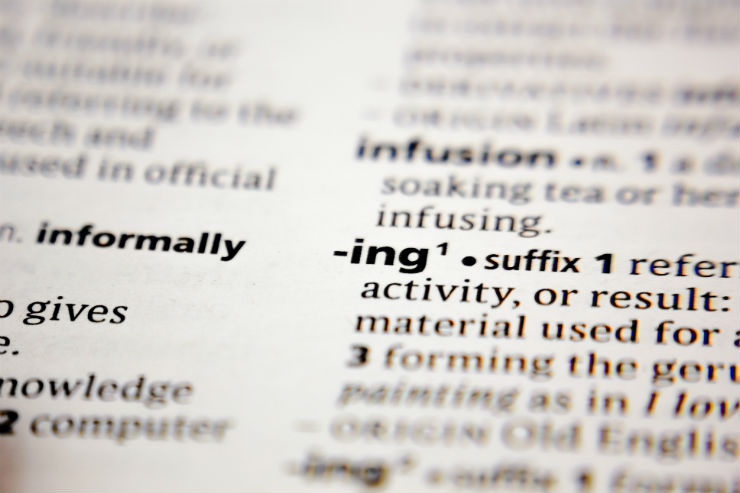Potere Conjugation – A very common verb
The Potere Conjugation is one of the most important in Italian language. We generally use potere to express capacity to do something. But you can also use it to ask for permission to do something. In some cases, especially in the negative, it is used to indicate an impediment or a forbiddance.
Examples:
Al momento non può lavorare perché è a letto con l’influenza.
He can’t work at the moment because he is in bed with the flu.
Non ho potuto fare niente per aiutarlo. Mi dispiace davvero tanto!
I wasn’t able to do anything to help him. I’m really sorry!
As you can see, potere translates both the modal verb can and the expression to be able to. Seen as can has only two forms, can (for the present tense) and could (for the past and conditional tenses), the expression be able to is required to conjugate the verb in the “lacking” tenses (e.g. future tense, present perfect, etc.).
Examples:
Spero che potrete rivedere presto vostra madre. Vi cerca da giorni!
I hope you will be able to see your mother again. She’s been looking for you for days!
Non avevo potuto dirgli la verità perché non voleva ascoltarmi in quel momento.
I hadn’t been able to tell him the truth because he didn’t want to listen to me in that moment.
Potere conjugation – Presente

First of all, you should know that potere follows an irregular conjugation. This means that you need to learn its conjugation in all tenses by heart.
Let’s see how to conjugate it in Presente:
|
Io posso |
|
Tu puoi |
|
Lui/Lei può |
|
Noi possiamo |
|
Voi potete |
|
Loro possono |
Examples:
Possono venire al cinema con noi anche Giancarlo e Anna questa sera?
Can Giancarlo and Anna come with us to the cinema this evening, too?
Se serve, posso aiutarti io questo weekend con gli esercizi di matematica.
If you need, I can help you with math exercises this weekend.
Potere conjugation – Passato Prossimo

|
Io ho potuto |
Io sono potuto/a |
|
Tu hai potuto |
Tu sei potuto/a |
|
Lui/Lei ha potuto |
Lui/Lei è potuto/a |
|
Noi abbiamo potuto |
Noi siamo potuti/e |
|
Voi avete potuto |
Voi siete potuti/e |
|
Loro hanno potuto |
Loro sono potuti/e |
In the Passato Prossimo, the verb potere usually requires the auxiliary have.
Examples:
Non ha potuto fare i compiti perché ha dimenticato il libro a scuola.
He wasn’t able to / couldn’t do her homework because she forgot her book at school.
Hai potuto dire tutta la verità soltanto perché in quel momento c’era tuo padre lì con te.
You were able to / could tell the truth only because your father was there with you in that moment.
Sometimes, you are compelled to employ the auxiliary be. This happen with the so called “verbs of motion”. They are andare (to go), venire (to come) and reflexive verbs like lavarsi (to shower), vestirsi (to get dressed). In this case, the past participle of potere always agrees with the subject of the sentence.
Don’t forget that these rules must be applied to all compound tenses (Trapassato Prossimo, Trapassato Remoto, Futuro Anteriore, etc.)
Examples:
Non è potuta venire al cinema con noi ieri pomeriggio perché aveva molte cose da fare.
She wasn’t able to / couldn’t come to the cinema with us yesterday afternoon because she had a lot of things to do.
Le ragazze non si sono potute lavare stamattina perché la caldaia era rotta.
The girls weren’t able to / couldn’t shower this morning because the boiler was broken.
Potere Conjugation – Imperfetto

|
Io potevo |
|
Tu potevi |
|
Lui/Lei poteva |
|
Noi potevamo |
|
Voi potevate |
|
Loro potevano |
As you can see, the past form could has been employed for the conjugation of the Italian Imperfetto. Probably, you already know that in this tense the consonant “v ” always occurs in all persons of the verb. This is usually the only way to recognize it easily.
Examples:
Mi ha detto che non poteva fidarsi di nessuno… nemmeno del suo migliore amico!
She told me she couldn’t trust anyone… even her best friend!
Potevate aspettarci prima di andare a parlare con il preside!
You could wait for us before going to talk to the principal!
Potere Conjugation – Trapassato Prossimo

|
Io avevo potuto |
Io ero potuto/a |
|
Tu avevi potuto |
Tu eri potuto/a |
|
Lui/Lei aveva potuto |
Lui/Lei era potuto/a |
|
Noi avevamo potuto |
Noi eravamo potuti/e |
|
Voi avevate potuto |
Voi eravate potuti/e |
|
Loro avevano potuto |
Loro erano potuti/e |
You can easily form the Trapassato Prossimo by using the simple past of auxiliary verbs essere and avere and the past participle of the verb potere. In English you need to look at the expression be able to in order to make a proper translation.
Examples:
Aveva potuto riflettere molto su quello che era successo.
He had been able to think a lot about what had happened.
Non eravate potuti uscire perché stava piovendo.
You hadn’t been able to go out because it was raining.
Potere Conjugation – Passato Remoto

|
Io potei |
|
Tu potesti |
|
Lui/Lei poté |
|
Noi potemmo |
|
Voi poteste |
|
Loro poterono |
Probably, you will never use the Passato Remoto because it mainly occurs in literature, history books or novels. However, you could hear it from some people living in South Italy, especially in Sicily and Campania. In English its equivalent form is could.
Examples:
Non poté tornare a casa perché aveva perso l’autobus.
He couldn’t come back home because he had missed the bus.
Dopo l’arresto pagarono la cauzione e poterono uscire di prigione.
After being arrested, they paid the bail and they could get out of prison.
Potere Conjugation – Trapassato Remoto

|
Io ebbi potuto |
Io fui portato/a |
|
Tu avesti potuto |
Tu fosti potuto/a |
|
Lui/Lei ebbe potuto |
Lui/Lei fu potuto/a |
|
Noi avemmo potuto |
Noi fummo potuti/e |
|
Voi aveste potuto |
Voi foste potuti/e |
|
Loro ebbero potuto |
Loro furono potuti/e |
As for the Trapassato Prossimo, you are able to create sentences with Trapassato Remoto by using the past tense of auxiliary verbs and the past participle of potere. Also in this case, you are asked to use the expression be able to.
Examples:
Dopo che non ebbe potuto dormire per tanto tempo, finalmente si addormentò.
After he hadn’t been able to sleep for so long, he fell asleep at last.
Dopo che si furono potute sedere, si sentirono molto meglio.
After they had been able to sit, they felt much better.
Potere Conjugation – Futuro semplice

|
Io potrò |
|
Tu potrai |
|
Lui/Lei potrà |
|
Noi potremo |
|
Voi potrete |
|
Loro potranno |
For a proper construction of sentences with Futuro semplice in English, you are suggested to apply the expression be able to with will in the present tense.
Examples:
La mamma ha detto che potrai andare al parco dopo aver lavato tutti quei piatti.
Mum said you will be able to go to the park after washing all those dishes.
Non potremo mangiare fino a quando non sarà pronto a tavola.
We won’t be able to eat until it’s dinner time.
Potere Conjugation – Futuro Anteriore

|
Io avrò potuto |
Io sarò potuto/a |
|
Tu avrai potuto |
Tu sarai potuto/a |
|
Lui/Lei avrà potuto |
Lui/Lei sarà potuto/a |
|
Noi avremo potuto |
Noi saremo potuti/e |
|
Voi avrete potuto |
Voi sarete potuti/e |
|
Loro avranno potuto |
Loro saranno potuti/e |
Futuro Anteriore is also very simply to form. Use auxiliary verbs in the future tense, followed by the past participle of potere. Also in this case, you must employ be able to with will in the past tense.
Examples:
Quando avranno potuto leggere i loro romanzi preferiti, saranno sicuramente più felici.
When they will have been able to read their favorite novels, they will surely be happier.
Sarà potuta uscire?
Could she have gone out?
Potere Conjugation – Condizionale Presente

|
Io potrei |
|
Tu potresti |
|
Lui/Lei potrebbe |
|
Noi potremmo |
|
Voi potreste |
|
Loro potrebbero |
As for the Imperfetto and Passato Remoto, the equivalent form of Condizionale Presente is could in English.
Examples:
Potrebbero tardare perché oggi c’è lo sciopero dei mezzi pubblici.
They could be late because today there’s a public transport strike.
Potresti darmi dello zucchero, per piacere?
Could you please give me some sugar?
Potere Conjugation – Condizionale Passato

|
Io avrei potuto |
Io sarei potuto/a |
|
Tu avresti potuto |
Tu saresti potuto/a |
|
Lui/Lei avrebbe potuto |
Lui/Lei sarebbe potuto/a |
|
Noi avremmo potuto |
Noi saremmo potuti/e |
|
Voi avreste potuto |
Voi sareste potuti/e |
|
Loro avrebbero potuto |
Loro sarebbero potuti/e |
As regards the Condizionale Passato, you build it by resorting to the future tense of auxiliaries, combined with the past participle potuto, properly agreed with the subject of the sentence.
Examples:
Se me lo avessi chiesto, avrei potuto aiutarti.
If you had asked me that, I could have helped you.
Si sarebbero potuti mascherare per Carnevale ma alla fine hanno deciso di non farlo.
They could have dressed up for Carnival but they decided not to do that at last.
Potere Conjugation – Congiuntivo Presente

|
Che io possa |
|
Che tu possa |
|
Che lui/lei possa |
|
Che noi possiamo |
|
Che voi possiate |
|
Che essi possano |
Italian Congiuntivo is not very used in English. Its main feature is the presence of the conjunction che preceding the conjugated verb.
The Congiuntivo Presente, Congiuntivo Passato, Congiuntivo Imperfetto and Congiuntivo Trapassato can be translated with the tenses of present and past simple.
Examples:
Spero che tu possa essere felice con la tua nuova famiglia.
I hope you can be happy with your new family.
Credo che possiamo farcela anche da soli senza il vostro aiuto.
I think we can do it ourselves, even without your help.
Potere Conjugation – Congiuntivo Passato

|
Che io abbia potuto |
Che io sia potuto/a |
|
Che tu abbia potuto |
Che tu sia potuto/a |
|
Che lui/lei abbia potuto |
Che lui/lei sia potuto/a |
|
Che noi abbiamo potuto |
Che noi siamo potuti/e |
|
Che voi abbiate potuto |
Che voi siate potuti/e |
|
Che loro abbiano potuto |
Che loro siano potuti/e |
Examples:
Sono felice che abbiano potuto salutarlo prima della sua partenza.
I’m glad they were able to / could greet him before he left.
È dispiaciuta del fatto che non siate potuti venire al suo matrimonio.
She is sorry you weren’t able to / couldn’t come to her wedding.
Potere Conjugation – Congiuntivo Imperfetto

|
Che io potessi |
|
Che tu potessi |
|
Che lui/lei potesse |
|
Che noi potessimo |
|
Che voi poteste |
|
Che loro potessero |
Examples:
Se potessi smetterla di preoccuparti, te ne sarei grato.
If you could stop worrying, I would really appreciate it.
Vorrei che poteste partecipare anche voi alla serata di beneficenza.
I wish you could take part in the charity evening, too.
Potere Conjugation – Congiuntivo Trapassato

|
Che io avessi potuto |
Che io fossi potuto/a |
|
Che tu avessi potuto |
Che tu fossi potuto/a |
|
Che lui/lei avesse potuto |
Che lui/lei fosse potuto/a |
|
Che noi avessimo potuto |
Che noi fossimo potuti/e |
|
Che voi aveste potuto |
Che voi foste potuti/e |
|
Che loro avessero potuto |
Che loro fossero potuti/e |
Examples:
Se fossimo potuti rimanere di più, avremmo giocato ancora un po’.
If we had been able to stay / could have stayed longer, we could have played still for a while.
Non riuscivo a capire come avessero potuto ingannare mia sorella per tutti questi anni.
I couldn’t understand how they had been able to cheat / could have cheated on my sister all these years.
Potere Conjugation – Infinito

|
Present tense |
Past tense |
Past tense |
|
potere |
avere potuto |
essere potuto/potuta/potuti/potute |
Examples:
È una gioia poterti vedere di nuovo sorridere dopo tanto tempo.
It’s a joy to be able to see you smiling again after all this time.
Aver potuto incontrare il mio cantante preferito mi ha rallegrato la giornata.
Having been able to meet my favorite singer made my day.
A thing to remember is that the present tense of Italian Infinito is mainly used as a noun, il potere, which translates the word power in English.
Example:
Quella ragazza riesce sempre ad ottenere ciò che vuole. Sembra avere uno strano potere sulle persone!
That girl is always able to get what she wants. She seems to have this strange power over people.
Potere Conjugation – Participio

|
Present tense |
Past tense |
|
potente |
potuto/potuta/potuti/potute |
Examples:
È uno degli uomini più ricchi e potenti di San Francisco.
He’s one of the richest and most powerful men in San Francisco.
Non hanno potuto visitare il museo perché era chiuso.
They weren’t able to / couldn’t visit the museum because it was closed.
As you may have noticed, the present tense of Participio is mostly used as an adjective or a noun, while the past tense has only an auxiliary function.
Potere Conjugation – Gerundio

|
Present tense |
Past tense |
Past tense |
|
potendo |
avendo potuto |
essendo potuto/potuta/potuti/potute |
Examples:
Potendo uscire prima da lavoro, sono andato al supermercato.
Being able to leave work early, I went to the supermarket.
Essendo potuti arrivare prima del previsto, hanno fatto colazione.
Having been able to arrive ahead of schedule, they had breakfast.
Even if Italian Gerundio is widely common, we generally find it in the written language and in a few cases when people talk to each other, for example in case of present progressive.
Now you are ready to communicate your abilities and capacities to everyone you are talking to.
So, it’s time to say what you can or cannot do using potere in the right conjugation!
If you want to practice Italian Grammar and tenses here is a list of useful books for you:




















